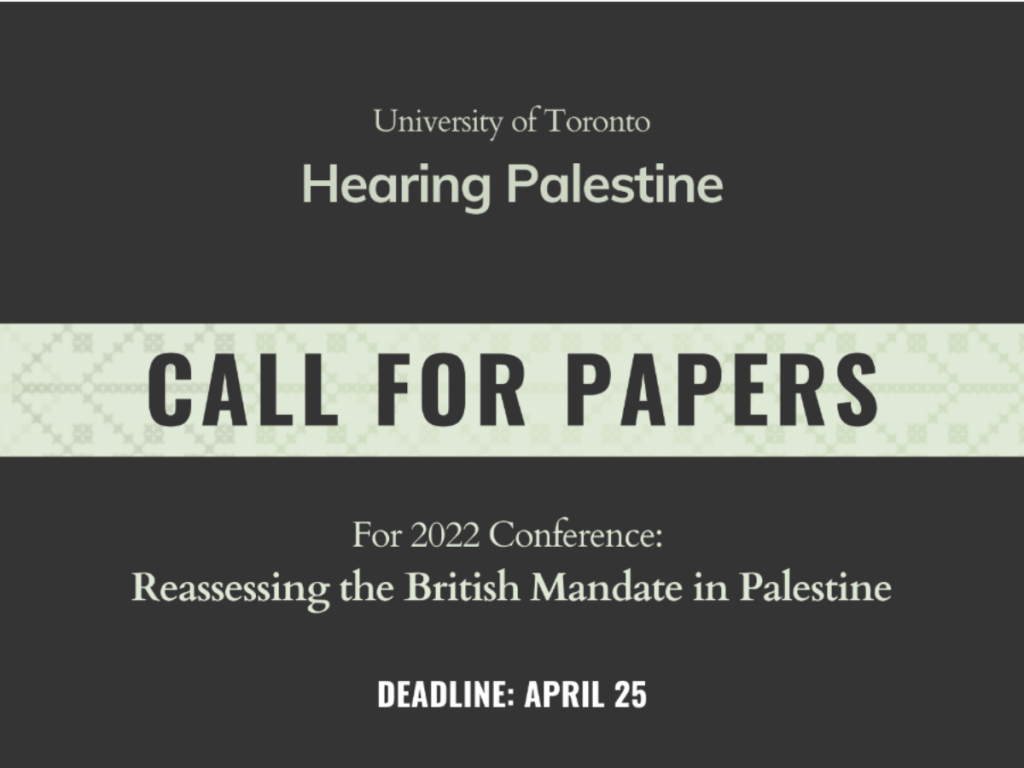The Hearing Palestine Initiative welcomes Dr. Sa’di-Ibraheem to a two-year postdoctoral fellowship, the first of its kind at the University of Toronto, with the support of the Faculty of Arts and Science and the Institute of Islamic Studies.

Dr. Yara Sa’di-Ibraheem, specialises in political geography, with research interests that include indigenous geographies and temporalities, settler colonialism, neoliberal urbanism, and infrastructure, focusing on the Middle East, particularly Palestine. Her main research explores socio-political dimensions of infrastructure in colonial settings— principally telecommunications and playgrounds—as well as neoliberal planning under settler colonialism and the spatial-temporal experiences of indigenous communities.
A selected list of her publications includes:
Sa’di-Ibraheem, Y. & Wilkof S. (2025). Cabling and Un-cabling Palestine/Israel: Toward a Theory of Cumulative Infrastructural Injustice. Political Geography.
Sa’di-Ibraheem, Y. (2021). Privatizing the production of settler colonial landscapes: ‘Authenticity’ and imaginative geography in Wadi Al-Salib, Haifa. Environment and Planning C: Politics and Space, 39(4), 686-704.
Sa’di-Ibraheem, Y. (2021). Indigenous Wanderers in a Fortress Campus: Spatial Experiences of Palestinian Students at the Hebrew University of Jerusalem. Holy Land and Palestine Studies. 20(2), 123-145.
Sa’di-Ibraheem, Y. (2020). Jaffa’s times: Temporalities of dispossession and the advent of natives’ reclaimed time. Time & Society, 29(2), 340-361.
